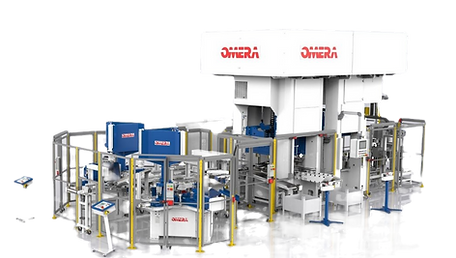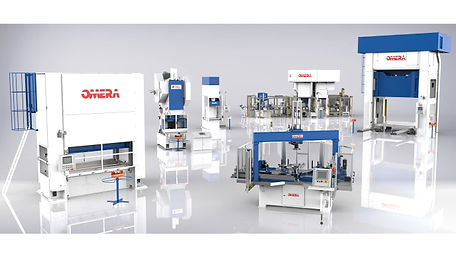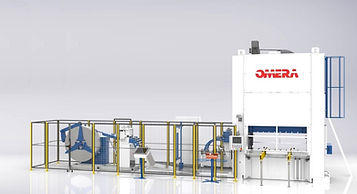Spring pins
detailed explanations about the purpose, application and advantages, as well as the importance of certified quality for long-lasting and safe connections.

Elastični zatik (Spannstift, Spring Pin, Spine Elastiche) –Purpose, Advantages, and the Importance of Quality
The elastic pin, known under various names such as Spannstift (German), Spring Pin (English), and Spine Elastiche (Italian), is a standardized mechanical component used to connect or secure two or more parts in a precise relative position. These pins are made from spring steel or other elastic materials, allowing them to absorb bending forces and vibrations during operation.
Main Purpose
Elastic pins are used across a wide range of industrial and engineering applications, including:
-
Securing assemblies in automotive, machinery, electronic devices, and tools.
-
Positioning parts to maintain precise alignment during machine or assembly operation.
-
Transmitting torque (e.g., in gearboxes or drive systems) where joint reliability and minimal deformation are critical.
-
Replacing traditional solid pins or bolts where quick assembly and disassembly are required.
How It Works
An elastic pin has a hollow cylindrical shape with a longitudinal slot. When inserted into a hole of slightly smaller diameter, the pin compresses and generates strong radial pressure against the hole walls. This elastic force keeps the pin firmly in place and provides resistance against vibration, impact, and axial loads.
Advantages
-
Easy installation and removal – No special tools are required beyond basic assembly aids (e.g., hammer, press, or insertion tool).
-
High resistance to vibration and shock – Thanks to its elastic structure, it prevents unwanted loosening.
-
Self-centering effect – The pin adapts to the hole, allowing for minor dimensional tolerances.
-
Weight reduction – Compared to solid pins, elastic pins are lighter, which is advantageous in weight-sensitive applications.
-
Cost-effectiveness – Their combination of easy installation, reliability, and long service life makes them a highly economical solution.
The Importance of Pin Quality
The quality of an elastic pin is crucial for:
-
Joint safety – A low-quality pin may crack or deform during assembly, leading to failures or even accidents.
-
Durability – A high-quality pin is made from carefully selected materials (e.g., spring steel grade C67S or similar) and undergoes controlled heat treatment to achieve optimal hardness and elasticity.
-
Corrosion resistance – Especially in harsh environments (e.g., automotive industry), the surface must be properly protected (phosphating, zinc plating, etc.).
-
Dimensional precision – To ensure tight fit and easy assembly, the pin must meet strict tolerances according to ISO 8752 / DIN 1481 standards.
Low-quality pins increase the risk of:
-
Hole damage during installation.
-
Loosening of the joint during operation.
-
Reduced fatigue resistance and shorter service life.
Conclusion
An elastic pin is a small yet critical component in countless industrial applications. Its role extends beyond mechanical fastening – it ensures safety, stability, and reliability. Investing in high-quality pins guarantees system integrity, minimizes downtime, and ensures long-term performance. Even the smallest detail can make a major difference in the overall functionality of an assembly.
Problems with Cheap Asian Pins (Mn65 Material) and Why They Are Banned in the Automotive Industry
The market is flooded with low-cost elastic pins, particularly from certain Asian factories, made from Mn65 (manganese steel). Although they may appear visually identical to standard products (e.g., ISO 8752 / DIN 1481), they suffer from serious technical deficiencies, making them unacceptable for safety-critical industries such as automotive manufacturing.
Why Is Mn65 Problematic?
Low elasticity and fatigue resistance
Mn65 does not provide the same mechanical properties as high-grade spring steels (e.g., C67S, 51CrV4). As a result:
-
It loses elasticity faster.
-
It is prone to cracking under dynamic loads and vibration.
Poor heat treatment
Cheap products often lack controlled heat treatment, leading to:
-
Surface microcracks.
-
Irregular hardness (too brittle or too soft).
Low corrosion resistance
Inadequate surface protection (no proper phosphating or zinc coating) causes:
-
Rapid rust formation.
-
Progressive weakening over time, especially in moist or salty environments.
Practical Consequences
-
Cracking during installation – Due to low elasticity, Mn65 pins often break even when installed into standard-tolerance holes.
-
Unreliable joints – Insufficient radial pressure results in loose connections.
-
Inconsistent dimensions – Poor production control leads to dimensional deviations, which is critical in precision assemblies.
Why They Are Banned in the Automotive Industry
The automotive industry adheres to strict quality and safety standards. Every mechanical joint must ensure long-term reliability under high loads and extreme conditions (temperature, humidity, vibration).
Due to documented failures and safety issues, major car manufacturers have officially banned the use of Mn65 pins, requiring certified materials with traceable production and verified quality.
Conclusion
While low-cost pins might appear attractive, their use in high-reliability industries poses a serious safety risk. The Mn65 material simply does not meet the minimum mechanical requirements for durability and safety, which is why it is strictly prohibited in the automotive sector and other critical industries.
Why It’s Important to Know the Origin of the Pins You Buy
In the past decade, the European market has been flooded with elastic pins imported from Asia and sold under European-sounding brands. Many distributors buy low-cost pins and relabel them under their own brands, concealing their true origin and quality.
End users often remain unaware that they are purchasing substandard products that do not meet European standards – leading to potential failures, hidden costs, and safety risks.
Who We Are
Our partner company DOREMA, established in 1989, has been manufacturing elastic pins exclusively according to ISO and DIN standards, ensuring the highest levels of quality and reliability.
With decades of experience and tightly controlled production processes, DOREMA has become a trusted supplier to major industrial customers across Europe.
Our products are regularly supplied to:
-
Wholesalers and industrial distributors
-
Direct automotive manufacturers
-
Agricultural machinery producers
-
Gearbox and transmission manufacturers
-
Electronics and defense industries
Quality That Comes Back – but at a Higher Price
Interestingly, our products often return to the Croatian market through large distributors – but at significantly higher prices.
While customers may think they are buying a “new” brand, in reality they are purchasing our original pins that have been resold by intermediaries at inflated margins.
Our New Initiative: Direct Sales
To give customers access to top-quality products without unnecessary intermediaries, we have launched our own online store.
Here you can find elastic pins directly from our stock and production – at a fair price that truly reflects their real value.
Market Overview – Who Are the Real Manufacturers?
Currently, there are only four serious producers of elastic pins in Europe:
-
German-French group
-
manufacturer from Spain
-
British producer (whose pins are actually made in the USA, Mexico, and Asia)
-
DOREMA (Croatia)
All others are either small workshops with limited capacity or simple traders who rebrand imported goods.
Why Choose Us
-
Proven quality and full transparency
-
Certified production under ISO / DIN standards
-
Over 35 years of experience
-
Direct supply without intermediaries
By purchasing through our online store, you get the original industrial-grade product used by Europe’s leading manufacturers – at a competitive price.
Our Production and Market Presence
Our annual production of elastic pins ranges between 120 and 160 million pieces, depending on sizes and specific market demands.
Thanks to our high production flexibility and strict quality control, we successfully export worldwide.
Main export markets include:
Austria, Germany, Italy, Switzerland, France, Spain, Slovenia, the Netherlands, Sweden, Finland, Ireland, the United Kingdom, Romania, Bulgaria, Greece, Slovakia, Czech Republic, Poland, Estonia, Turkey, and Japan.
Our strong presence in these markets demonstrates the international trust in our quality and our ability to meet the highest industrial standards across various sectors – from automotive and agricultural to military and electronic industries.









